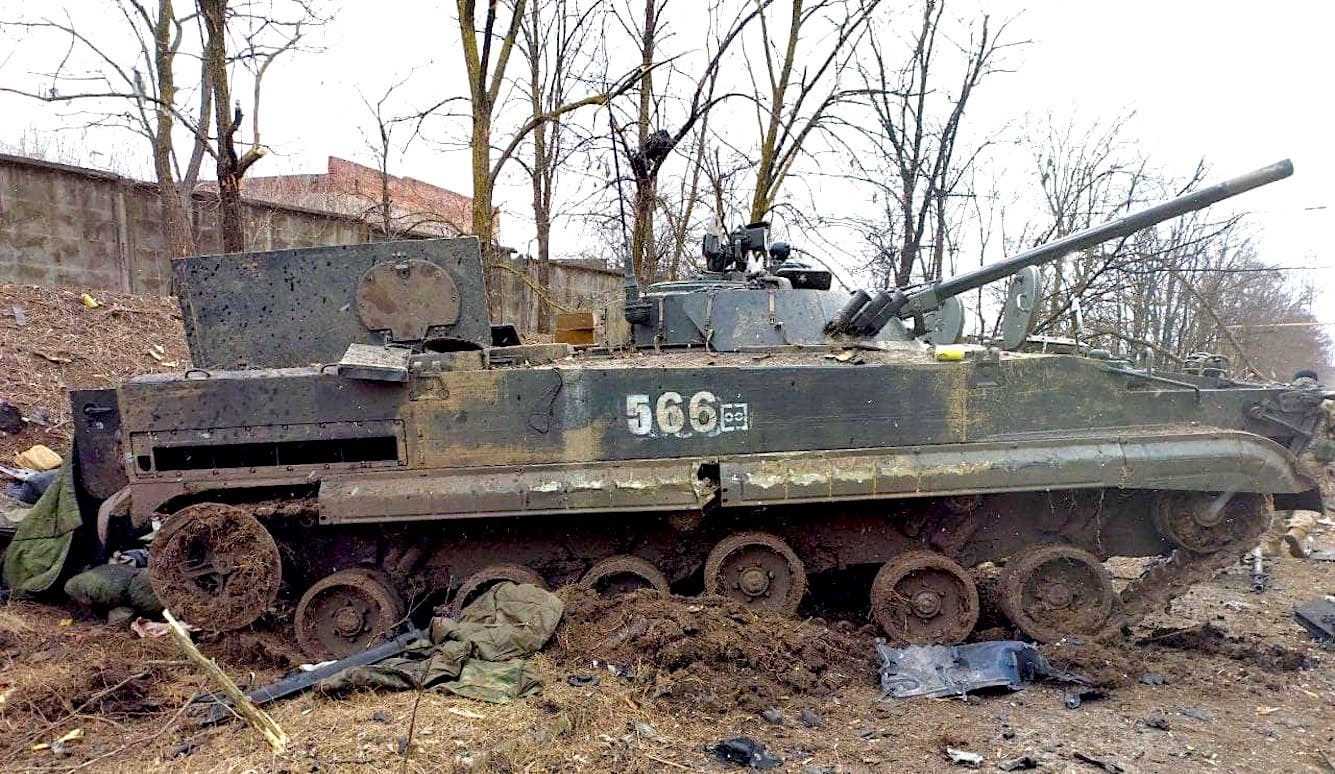ukraine conflict
Ukraine’s Suffering Shows Culture Warriors What a Real War Looks Like: a Quillette Editorial

Over the last month, Vladimir Putin has invaded Ukraine, slaughtered thousands of its citizens, and laid waste to its infrastructure. At home, the Russian President has outlawed political dissent, arrested legions of antiwar protesters, shut down the last vestiges of an independent press, and, as Quillette contributor Robert Ginzburg has noted, justified it all by channelling the rhetoric of Stalinist totalitarianism. The fact that many Western pundits and politicians spent years making excuses for the Russian dictator—and even, in some cases, holding him up as an example to be emulated—shows how thoroughly our society’s core liberal principles have been undermined by populist politics and culture-war tribalism.
As Francis Fukuyama wrote in Quillette, recent years have brought many calls from “realists” urging us “to grant Russia a sphere of influence over the territory of the former USSR, and to negotiate the neutralization of Ukraine.” But some have gone further than mere realism, casting Putin as a champion of conservatism and family values. To populists whose main preoccupation is the rejection of “elite” attitudes, the fact that Putin despises liberal values is seen, perversely, as an asset—as they process every conflict according to the specious adage that any enemy of an enemy must be a friend. Even once Putin’s invasion started, prominent right-wing figures such as FOX News host Tucker Carlson continued to echo Putin’s propaganda against Ukraine; while leftists repeated baseless accusations that it is NATO, not Russia, that has been acting belligerently in Eastern Europe, and even suggested that solidarity with Ukrainians must somehow be a vestige of racism.
Putin’s plan evidently had been to seize Ukraine’s capital quickly, depose Ukrainian President Volodymyr Zelenskyy, and present Russian control of Ukraine to the world as a fait accompli. The good news is that, thanks to a combination of fierce Ukrainian resistance and Russian military bungling, that didn’t happen. The Ukrainian military continues to stage offensive operations, capture Russian weapons, and occasionally reclaim Russian-occupied areas. The sight of Ukraine standing up to its much larger neighbor has been inspiring—even if, as Iryna Vushko wrote in her recent historical overview of Russian predation in Ukraine, not as surprising as many observers might think.
As a result, Putin looks to be not only cruel but inept. He also seems naïve, having failed to anticipate the vigorous response from Western political leaders, which has included crushing trade and financial sanctions against Russia, military aid to Zelenskyy, and a show of solidarity at the United Nations. (On UN General Assembly Resolution ES-11/1, deploring Russia’s invasion of Ukraine and calling for the immediate withdrawal of Russian forces, the only nations that lined up with Russia were Belarus, North Korea, Eritrea, and Syria.) If the West can keep the pressure up and make Russia pay a steep price, the precedent won’t merely help deter further Russian acts of aggression, but also discourage similarly naked acts of aggression by other rogue actors.
One common refrain in recent weeks is the idea that Putin’s invasion of Ukraine has caused us to rediscover the real life-and-death lessons of history. Joel Kotkin and Hügo Krüger have even predicted a return to “something resembling the ‘Great Game’ of the 19th century.” But many culture warriors are too deep into their own ideological silos to understand how high the stakes in this game have become. Because of the way we now get our news, genuine crises and catastrophes compete for attention in our feeds alongside everyday gossip, bickering, and propaganda. Every new input is mechanically valued in the currency of virality, and processed against pre-existing ideological commitments. Indeed, some of the most unsettling reactions to Putin’s aggression have emerged among those who seem too busy fighting the culture wars to notice that a real war has broken out.
This includes journalists who present transphobia and racism as ranking among Eastern Europe’s top current concerns, as well as the aforementioned Tucker Carlson, who defended Putin on the basis that the Russian leader had never “called me a racist” or “threatened to get me fired for disagreeing with him.” As Cathy Young noted:
Reactions to Russia’s war in Ukraine have become a perfect demonstration of the “horseshoe theory,” according to which the extremes of Left and Right must converge. Amid overwhelming international condemnation of Russia and sympathy for the Ukrainians’ courageous resistance, Putin-friendly voices blaming the West, NATO, and particularly the United States for the invasion have come from the usual left-wing opponents of American and Western “imperialism” (including the Democratic Socialists of America) and from right-wing opponents of “globalist elites.” But in this instance, the voices on the Right have been louder and more numerous.
While bigotry and cancel culture are real issues, they pale in comparison to Putin’s apparent effort to cancel a whole sovereign nation. Unfortunately, thanks to the levelling effect of our modern news-consumption patterns, many of us can no longer understand the massive difference in scale that separates these problems.
As Quillette editor-in-chief Claire Lehmann wrote recently in the Australian, the tragedy in Eastern Europe represents a reality check for ideologues: If you cannot respond sensibly and humanely to such a clear instance of murderous aggression as Russia’s invasion of Ukraine, it’s a sign that your ability to understand world events has been subjugated to political dogma. Throwing off that mindset means understanding that the enemy of your enemy isn’t always your friend. Sometimes, as with Putin, he’s just another, much more dangerous enemy.





